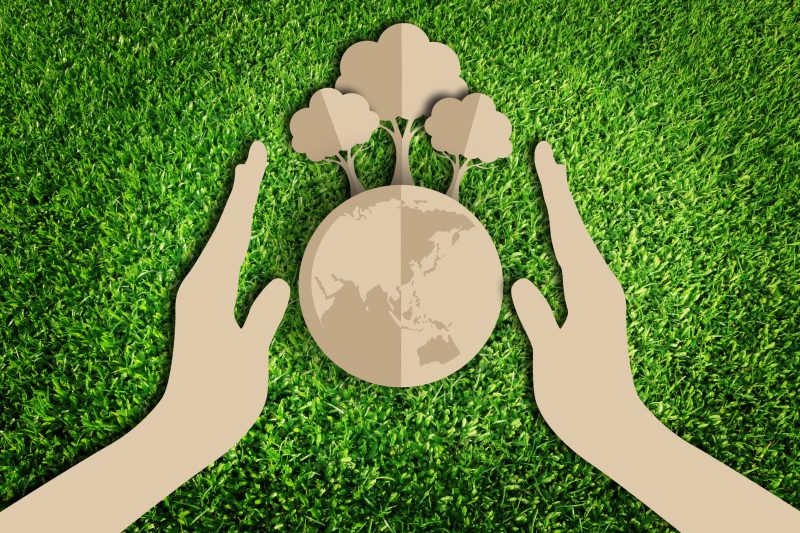
Here at the garden, we aim to have a positive impact on the environment. Growing your own food is one big way of helping the environment, but there are many other choices we can make to help out in this endeavor.
Unfortunately, many of the choices that are out there are also ones that cost a great deal of time and money that some do not have to spare. For instance, many of you reading this can probably attest to the time it takes to grow your own food and to do it well. So then we might ask, what are some small changes that one can make in their day to help the environment when their resources are limited?
I’ve compiled a list of suggestions here that I think fit that criteria. While not all of these suggestions will be applicable to everyone, I hope everyone can find something from this list that they find helpful!
- Cook smart. Don’t let kitchen appliances use more energy than they need. For instance, use a stovetop burner that is the same size as the pot or pan you are cooking in. If the burner you use is larger than the pot or pan itself, then energy is being wasted through the heat that dissipates from the uncovered burner space. Additionally, turning your oven off ten minutes before the end of cooking time will allow the trapped heat to finish cooking and will reduce wasted energy.
- Meatless Mondays. If you are not already a vegetarian, going fully meatless might seem like a daunting task. However, its environmental impact can be huge. For a family of four, going meat-free for one even day a week may have almost the same environmental impact as driving a hybrid car. If you need some ideas for cheap vegetarian recipes, check out the vegetarian section of one of my favorite recipe blogs, Budget Bytes.
- Store fresh produce properly in order to reduce food waste. By knowing the proper storage for fresh produce, we can extend its shelf life and therefore reduce the food we waste in our homes. Use this quick, handy guide to know the best practices for storing produce.
- Go paperless in your kitchen. Avoid the waste produced by paper products in your kitchen, particularly paper towels and napkins, by using cloth products such as kitchen towels and cloth napkins in their place. Follow these tips and you can make steps towards saving the environment and saving money at the same time.
- Use homemade non-toxic cleaners. Ditch those store-bought cleaning products that can pollute the air and replace them with some of these substitutions. That webpage is a great resource with many different homemade formulas, including air fresheners, rust remover, a cleaner for carpet stains, and more. While some are more complicated, most of them are easier and cheaper than you’d think, requiring only a couple of simple ingredients that you might already have in your home, such as baking soda, lemon juice, vinegar, or hydrogen peroxide.
- Air-dry your laundry. Laundry dryers use a great deal of energy, so try switching to air-drying whenever possible. Set up a clothesline outside in warmer months if you have the outdoor space. If the weather doesn’t allow for it or you don’t have outdoor space, dry indoors by using a drying rack or by hanging clothes on hangers and over doors, shower rods, and chairs.
- Stop idling. Many of us think that turning off and restarting a car uses more energy than it takes to keep the engine running for the time we are stopped. However, it turns out that idling for any longer than ten seconds uses more energy than it takes to turn off and turn back on the engine. If you have a car, keep this fact in mind to make an easy and energy-efficient change!
- Take shorter showers. This is one that many of us know, but find hard-pressed to give up. But the impact it can make is huge—showering for a few minutes less every day can save thousands of gallons of water in a year. If you find it hard to cut down your showering time, try turning the water off when you’re not really using it, such as when you are lathering your shampoo or body soap.
- Don’t flush every time. This one might seem controversial to you if you’re keen on cleanliness, but it’s sometimes it’s safe to leave a toilet without flushing. Apparently there’s an Australian saying that goes, “If it’s yellow that’s mellow, if it’s brown flush it down,” and a Caribbean saying, “In the land of sun and fun, we do not flush for No. 1.” Follow those mantras and you can save water usage (and money, if you pay for your water).
- Secondhand shopping. Before going to buy brand new items, such as clothes, books, or appliances, stop and ask yourself if you could buy used items instead. Additionally, instead of throwing out old items that you are not planning on using them anymore, donate them or take them to a secondhand store where they can be resold. Similarly, think about borrowing before buying, whether it be borrowing an appliance from a neighbor or borrowing a book from the library.
Even if you can only manage a couple of these changes, you can still make a positive impact! Being eco-friendly shouldn’t be a source of stress, but rather something that you integrate into your life where you are able.
Thanks for reading!
References:
http://www.thehcf.org/antiidlingprimer.html
http://greatist.com/health/how-to-ways-reduce-food-waste
http://greatist.com/happiness/eco-friendly-tips-save-cash
http://www.sheknows.com/home-and-gardening/articles/807479/52-cheap-ways-to-go-green/